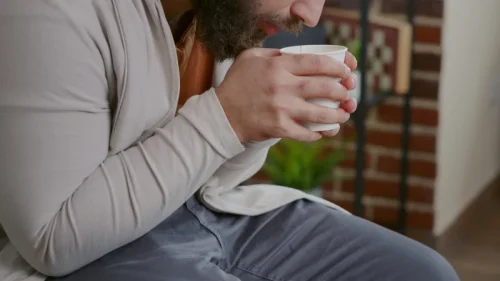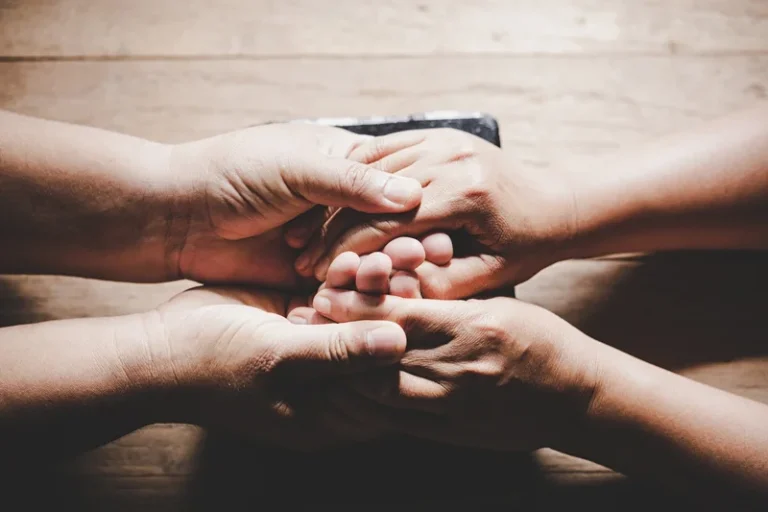Dwelling on your mistakes does no one any good, including the person you harmed. Acknowledging the interconnected nature of our lives is another aspect of Common Humanity. The truth is, who we are, how we think and how we behave is inextricably interwoven with other people and events. In other words, you didn’t get to where you are today all by yourself. Your tendency to be a victim or your tendency to be abusive did not just happen. You must continue to look for the causes and conditions that lead you to these unhealthy behavior patterns.
Healing Practices to Overcome Shame in Recovery

By focusing solely on the addictive behavior, you can neglect the other areas of your life that make your addictive behavior worse or could be the reason why it’s happening in the first place. It takes your breath away, makes you nauseous, and makes you want to disappear. https://ecosoberhouse.com/ We’ll lie, isolate ourselves, and search for any way to vanish so as not to feel it. Sometimes we use drugs or get drunk, other times we stuff our faces. If we get drunk enough or high enough, if we eat enough sugar or fat, the shame sheds away, for a moment.

Apologise to anyone you have harmed

But at Thrive Group Treatment Centers (including Thrive Treatment, Thrive Teen, The Last House, and The Nook), we provide unwavering support at every step. It’s like that little voice in your head that keeps reminding you of the people you’ve hurt and the missed opportunities because of your addiction. Work toward letting go of self-blame and embracing a sense of forgiveness for yourself and others involved in your journey. Channel your energy into positive activities that promote personal growth and well-being.
- Volunteer for a cause you care about, pursue a hobby that brings you joy, or learn a new skill.
- Either way, you will learn something important about yourself that willhelp you keep and maintain a value system.
- Write a list of the people you have harmed and the ways you have harmed them.
- In this post, you’re going to learn all about guilt and shame in recovery and how to overcome them.
Get Out of Your Mind and Into Your Life Worksheet

Shame often stems from internalized beliefs about one’s worthiness, and it can lead to feelings of inadequacy, unworthiness, or being fundamentally flawed as a person. Guilt can serve as a motivational emotion, prompting individuals to make amends or change their behavior to align with their values. In this post, you’re going to learn all about guilt and shame in recovery and how to overcome them.
Theaddict is flooded with memories of the mistakes they made, the people they hurtand all the things they wish they could undo. This worksheet focuses on understanding and processing the feelings of guilt and shame that often accompany addiction. These emotions can act as both barriers and motivators in the journey towards recovery. By exploring these feelings, you can gain insights into your behaviors and start to heal. When we admit our wrongdoings and take the steps to change ourselves for the better, we can let go of negative self-perceptions. Feelings of guilt and shame have no purpose in your new life, especially once you have completed Step Five.
Over the past 15 years in which I have been a counselor, I have worked with individuals who have battled a variety of different addictions over their lifetime. However, the common factor in each case kept leading back to the emotional train wreck that their lives had developed into. Shame and guilt are parts of addiction and recovery that are quite common but can be repaired with time and work. If one dwells in these feelings though, the creation of self-doubt can lead to furthering relapse or causing it to reoccur.
Support for Me and My Family
Distinguishing Between Shame and Guilt is an important aspect of addiction recovery as these two emotions play a significant role in the behavior and self-esteem of an individual. Most days I am extremely grateful for the direction in which my life has led as I have been able to work with those individuals who still suffer from addiction. However, there are times in which I feel ashamed of this chapter in my life, mostly because I allowed something to control my existence for five years. This article will help you understand the importance of dealing with guilt and shame in recovery and help you find support as you work through the process. Our mission is to serve men recovering from substance use disorder and related co-occurring conditions. It’s normal and appropriate to feel guilty when you have done something wrong.
- Recognize that addiction is an illness, and mistakes made during that time don’t define your character or worth as a person.
- Talk to other people and find out how they would handle the situation.
- This can lead to feelings of guilt for the actions they took while under the influence or when struggling with their mental health.
It does not constitute medical, legal, or other professional advice, and does not replace, therapy or medical treatment. If you are in need of professional help, I recommend BetterHelp for affordable online therapy. However, addressing these emotions is crucial for maintaining mental well-being and sustaining recovery. Reflect on how past experiences can inform your recovery journey and empower you to make healthier choices. Understanding your triggers can help you develop coping strategies to manage these emotions.
In order to make a full addiction recovery, you need to be honest about your past to the people trying to help you. This includes any healthcare professionals, therapists, and close friends or family. Being truthful about your past could greatly improve the care that you are able to receive. It is guilt and shame in recovery equally as important that you are honest about your present situation as well. This is especially true if you have been having difficulties or have had a relapse. Although these things might be difficult to talk about, being honest about things like this can also improve the care that you receive.
Guilt is often related to specific actions or behaviors that a person considers to be wrong or harmful. Overcoming these emotions and learning from the relapse is crucial for maintaining motivation and resilience in recovery. They may feel remorse for the pain and suffering they caused their family and friends, leading to a deep sense of guilt and shame. Joining a 12-Step Program provides individuals with access to peers who have overcome similar struggles thus creating an empathetic environment providing comfort when needed. In addition to gaining accountability partners within such groups that significantly help sustain commitment towards recovery goals.
